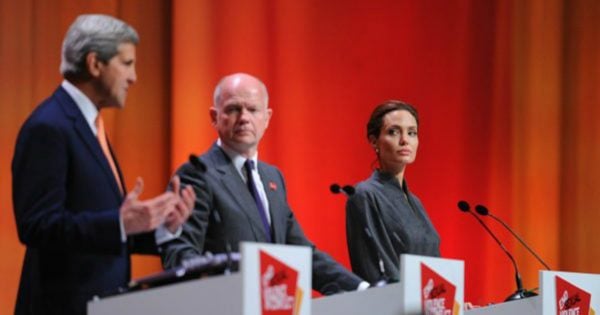
Earlier this year, international human rights lawyer, Amal Clooney stood before the United Nations Security Council and told them she was ashamed that states were failing to prevent or punish genocide perpetrated by Da’esh in Iraq and Syria. “This is the first time I have spoken in this chamber. I wish I could say I’m proud to be here but I am not. I am ashamed as a supporter of the United Nations that states are failing to prevent or even punish genocide because they find that their own interests get in the way.”
At the end of her speech, she turned to her client, a young Yazidi woman who had escaped sexual slavery, and apologised on behalf of world leaders for not doing more to help. That young woman, Nadia Murad, was recently awarded Europe’s highest human rights award for speaking out about her experiences and calling for action for those like her. In August 2014, Da’esh attacked her village in Sinjar, Iraq. Murad and her sisters were kidnapped and sold into sexual slavery. Repeatedly trafficked and raped, she suffered unimaginable cruelty before finally escaping.
We know that Da’esh is using sexual violence in war crimes, crimes against humanity and genocide. When sexual violence is perpetrated as part of an armed conflict, it is a war crime. When that violence is widespread or systemic, it is a crime against humanity. When it is used to destroy, in whole or in part, an ethnic, racial or religious group it is genocide.
Human Rights Watch and the New York Times have published reports on the sexual violence that is the hallmark of Da’esh. They have kidnapped thousands of women and girls, published entire doctrines on their use of sex slaves, and thrown LGBTQI people off rooftops for their sexuality. The United Nations has categorically catalogued Da’esh’s crimes against the Yazidi.




























































































